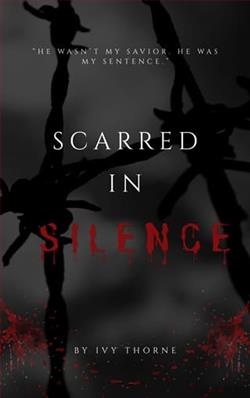Page 109 of Give the Dark My Love
I fingered my iron crucible with my right hand, then slipped through her skin with my left one—the ghost one. I dug into her body, lifting out the golden light of her soul. None of the living could see it, but the dead did.
I did.
My eyes grew warm, and the heat spread down and in, washing over my mind and seeping into my bones. It was relaxing, but had an edge of panic and urgency, like slowly realizing I was drowning in a warm bath.
There were only moments now, just a few breaths of time before the warmth was replaced with utter, still cold. Before the little girl’s soul slipped forever past my reach. There was no time for formalities or niceties. I could not linger over small talk like the girl’s name, or her past, or if she was happy. I had time for just a few questions, asked directly in my mind, answered by her fading soul.
Do you want to come back?I thought the words with no tone or inflection.I can bring you back, and you can be here again.
But I won’t be there?she responded.
I did not know wheretherewas, but it was a place the dead often talked about, quietly, among themselves when they thought the living couldn’t hear.
If you are here, you can’t be there,I answered.
Are my fathers sad?she asked. Her voice was like a high-pitched bell, the words ringing in my mind.
I was dimly aware of the way the mechanic had choked back a desperate sob, the way the mill worker had stood to be beside him, the way they were clutching each other’s hands.
That doesn’t matter,I replied. The cold was starting to creep in.Do you want to come back?
... No.
I let go, because I knewshewanted to let go. Her soul slid through my shadowy fingers, and I tucked my iron crucible back under my tunic. The golden mist evaporated into the night air. I tilted my face up for a moment, watching as the glittering light disappeared among the stars far above. Then I stepped back.
“Well?” the mechanic asked gruffly.
“No,” I said, giving him the same answer his daughter gave.
The mill worker sputtered in disbelief. The mechanic’s face shadowed with rage. I turned my back to them and started walking back to the hospital.
“Wait!” the mill worker roared, his meek sorrow replaced immediately with fury. “Youcan’tjust say no! You can’t! You brought that other boy back. Bringherback! Bring herback!”
He surged forward. I did not pause as I walked into the crowd of my revenants. They allowed me to pass, but then stood between me and the fathers. The men tried to claw and fight their way to me, but my revenants stood in silent protection, watching as the men finally broke.
“Fetch them a boat to the mainland,” I told the closest revenant.
I could still hear the fathers’ anguished pleading as I pushed open the doors of the hospital and let them slam shut behind me.
SIXTY
Grey
“The Emperor?” iasked. His portrait stared down at us, and I repressed a shudder.
“He knew,” Master Ostrum said simply. When I remained confused, he elaborated. “Emperor Auguste knew about Lord Anton. He knew about the protests from students, the dock workers who wanted to form a union. He knew that Governor Adelaide had been planning to peacefully pull from the Empire. He knew it all, and he came here to remind us who was in power.”
It seemed impossible; the Emperor was about my age. I shook my head, unable to absorb what it was my master was saying.
“He started the plague as a show of power. I think he stayed after the inauguration to see if he could use Governor Adelaide to stifle the protests,” Master Ostrum said. His eyes were sad as he looked at the shell of a woman. “When she proved unmalleable, he—”
“You’re saying the Emperor is a necromancer?” I gaped at him.
“It was Nedra who helped me to see it,” Master Ostrum said. “The plague seemed to target certain people—namely, the poor. Worthless fodder to the Emperor. He still has supporters among the upper classes, who benefit the most from his rule. And the few powerful people who opposed him...”
He let his voice trail off. Lord Anton, his biggest detractor, dead of plague. Members of the governor’s council who might have supported a revolution. The governor herself.
“He’s used the plague to terrorize the people,” Master Ostrum continued. “I have no doubt he plans to be the hero who stops it.” He glanced over to Governor Adelaide. “She’s hanging on, somehow. She’s stronger than anyone realized. But once she’s gone, the Emperor will use the plague to declare a state of emergency and dismantle the governorship. He’ll have complete control of our island, and anyone who thought to oppose him will be dead.”















